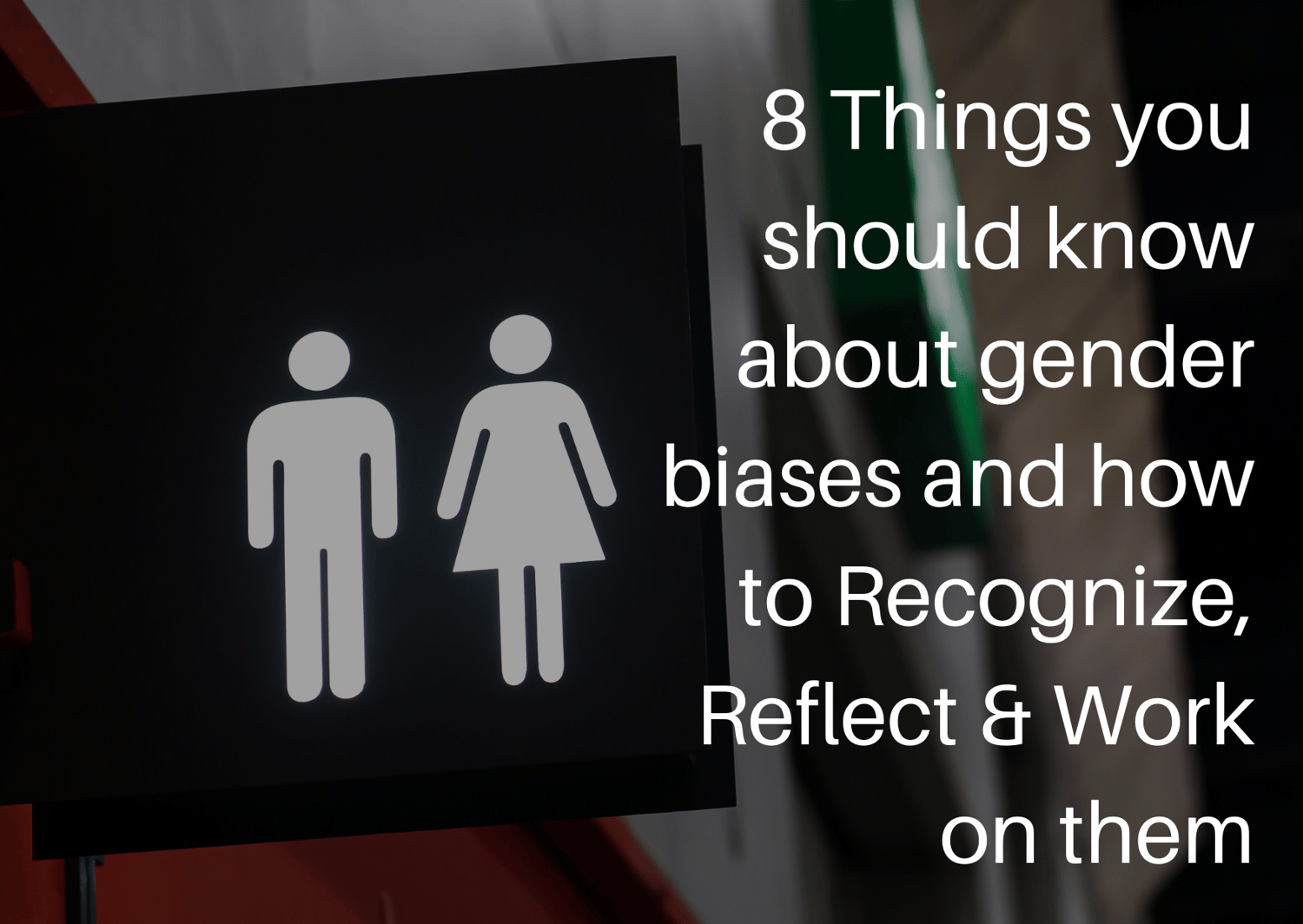In the month of March where the world celebrate International Women's Day, Cactus Foundation highlights it's unique and crucial initiative of *Key to Change - Raise Responsible Boys*
Empowering women is just one end of the spectrum to end gender based violence, another very important and ignored aspect of this fight is to raise males to step outside of the toxic standards set for them of looking at females as inferior to them.
Key to Change suggests 12 Action Points that can be put to use by families and parents to Raise Responsible Boys. This blog post addresses in detail, action point no. 1
“In the 21st-century, gender biases in parenting are a thing of the past.” Do you believe the same? Think again. Are we really past our popular narratives of blue is for boys and pink is for girls or boys don't cry, while girls are crybabies.
Gender bias is the tendency to give one gender preferential treatment over another. It can be a type of unconscious bias in which someone unintentionally assigns certain attitudes and stereotypes to a group of people. But these can be explicitly intentional as well. Conscious biases exist within a person's full awareness, influencing behavior knowingly. Consider a well-informed parent's decision to buy their boy child a toy car and their girl child a doll.
We all may agree that negative gender biases like “women are bad drivers” are some sexist statements. But what about much positive statements like “women are better caretakers and cooks than men”? This is a form of benevolent sexism, and while it is well intended, any form of gender bias can have adverse consequences. The above example subtly leads to the idea that women are better suited for domestic work rather than a professional career. And, the widely held idea that men can do all the outdoor work but know nothing of household work and emotional care. But the alarming part is that our gender biases create reality. A parent, acting upon these biases might raise children that suit these stereotypical roles. This is the existent danger of our disproportionate favor towards a particular gender.
[It is important to note that all genders, including women, men, nonbinary individuals, and transgender people can be targets of gender bias.]
RECOGNIZE
- Recognize the biases you might have
You might quite complacently believe that you and your family are free from any discriminatory practices. However, as previously stated, these biases are embedded in every nook and cranny of our minds, and, whether you realize it or not, they are actively creating our reality. Men are biased against women is a narrow narrative considering how you'll also find women biased against women.
Change can only begin once you recognize that you do, in fact, have biases toward any gender. Try to be as honest as possible and make a list of these biases. Maybe you have set some inconsistent rules for your children. Perhaps your boy child is allowed to stay over at his friend's place for a pajama party but you hesitate to send your girl child. Or going out beyond 6 is a strict no-no for your daughter but you are comparatively lax with your son. Make a note of all the biases you might have inherited and unconsciously practice
- Acknowledge your biases
After you have made a note and realized your biases, it is time to acknowledge them. Denying your biases will not help you overcome them. Leaving your biases behind is very important for the wellbeing of your family and the first step is to acknowledge them.
Acknowledging might take time and would want you to give up on doing it as it makes you question a lot of your behaviors towards the people of your family and other close groups, but remember it is very important to break through them.
REFLECT
A parents inclination towards a child of particular gender can very well be reflected in the way they distribute the family resources within the family, give opportunities to their children, how they deal with microaggressions, the type of play they encourage to their child ,and so on.
- Unequal distribution of family resources and opportunities
Resources are meant to be shared equally among the members of a family. However, we often discover that most families prefer to put in their all for the education, welfare and health of their male child. Even a low socio-economic class family which finds it difficult to put that one cup of milk on the table, favors the appetite and nutrition of the boy child. The same can be said for pursuits like education. Since, a daughter is seen as a mere transient resident, her aspirations are often overlooked. Another such domain that includes a lot of biased intent are the distribution of chores. Men tend to do more outdoor chores, such as car maintenance and yard work. While its considered more desirable for a woman to do housework, such as cleaning and cooking.
When it comes to choosing a career, people think of fixed professions for each gender. Teaching is for women, military is for men, most gay-men are either drag queens or dancers and most transgenders are jobless. These are the most common explicit or implicit associations people have about a particular group in their minds.
- Microaggression develops in boys
Are you all too familiar with Whatsapp jokes around women as gossip makers or ads that suggest the idea that men will be men . How about a cisgender woman complaining that a transgender woman does not understand what they are going through, implying that transgender women are not "real" women. These are all certain forms of microaggressions. A microaggression is a negative comment or action directed at a marginalized person or group. A microaggression can be either intentional or unintentional, but regardless constitutes discrimination. People who engage in this form of aggression may have no intention of causing harm to the person or to target a group. They may be unaware that they are making a microaggressive remark or action. Regardless, these can be extremely painful for those who experience them. If as a parent, you start normalizing such conversations and content, your kid might feel that it is alright to label, bully or laugh at someone based on their gender.
- Play influencing gender biases among children
Every child's learning and development begins with play. As a parent, you perform an important role in determining the toys, games, and activities your child chooses to indulge in. In terms of gender stereotyping, for example, girls may be encouraged to play with dolls indoors while boys are encouraged to play outside. While this teaches girls from an early age to be caregivers, it can also impede their ability to develop other types of cognitive, physical, and social skills. On the other hand boys are frequently given toys like guns to play with and encouraged to take part in in physical, and often more aggressive activities with other boys or male caregivers, which can promote unhealthy masculinity expressions. That is why toys and games that intentionally promote gender stereotypes, such as dressing-up, kitchen sets, pink packaging, unicorns, rainbows, and hearts for girls versus blue packaging, robots, spaceships, and toolboxes for boys, should be chosen with much consideration. Beware of gendered marketing!
WORK
- Children observe and learn
We all know that family is the first social group a child ever comes in contact with. So, the relationship between the parents serves as a model behavior for the child. If your child observes their father as the more dominant one in a husband-wife relationship or as someone making most of the decisions about the family, they might start thinking that men are the decision-makers while women are followers. They may begin to have undesirable thoughts that give them the authority to control their partners' lives. Whether it is a decision about conception, finances, or choosing the role of housewife over one's occupation, etc.
Sometimes, problem lays in the kind of language and non-verbal cues you sent across to your child. For example, praising your daughter for her appearance but praising your son for his physical strength. Also, consider how some cultures may show their young son less affection for fear of turning him into a "mama's boy". They may be less quick to console him when he makes a mistake or hurts himself, but more lenient when he exhibits other signs of aggressive behavior. In contrast, some parents are quick to rush in and help their daughter when she is struggling to complete a task. Regardless of their good intentions, depriving their daughters of this learning experience teaches them to rely on others for assistance rather than learning to be self-sufficient.
- Being mindful
One way to escape the rabbit hole of unconscious gender biases is to simply be conscious of ones own thoughts and actions. Only by being mindful will you be able to commit to your anti-gender bias practices. Sit down. Reflect. Journal your own biases. This road to unlearning and awareness might be a long and shaky one so remember to be patient and forgiving of yourself.
- Work with your children
Its only after you have recognized, acknowledged and worked on your own biases that you can move to start working with your kid. The reason being, you are your child's role model. When they see you putting some thought into action, they are motivated to do the same. Sit down and reflect together as a family on the various gender biases you might have. Start having discussions about the characters your child sees, listens and reads about, both in the online and the real world. Prompt them to think about their shallow identities and motivate them to go beyond the societal labels of what one gender can and cannot do.
In all, gender biases are real, whether you believe it or not. Some are out in the open and easily observable but most are concealed and require a great sense of self awareness in their identification. But fret not, these can be reversed with mindful practices. You just have to take the first step by RECOGNIZING.
So what are your and your child's gender biases?
Watch this video by Cactus Founder Director, Nusrat Khan talking about the Action Point no. 2
https://youtu.be/4tpDfyQqB9Q



Comments ()